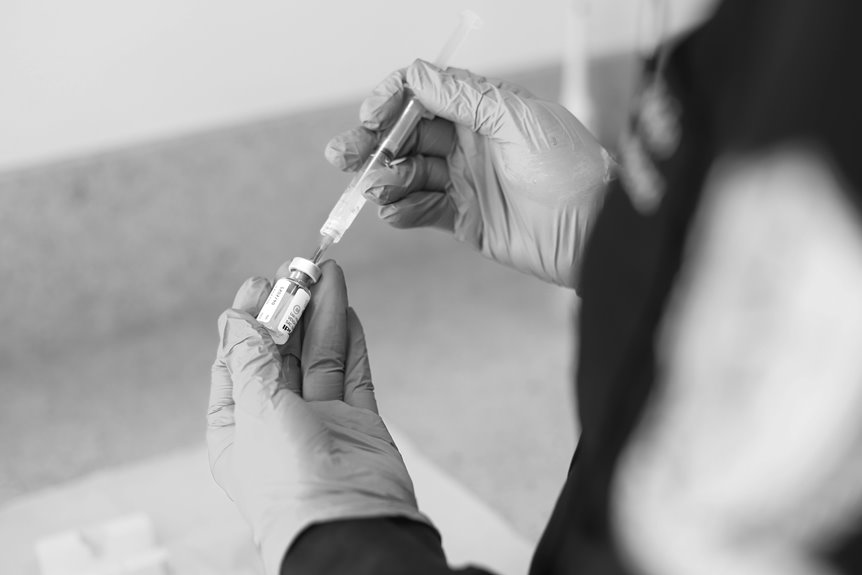You might be surprised to learn that many dentists aren't taking full advantage of their tax deductions. Despite the potential for significant savings, a lack of awareness and understanding of tax regulations often leads to missed opportunities. Common deductions like business expenses and healthcare premiums might go overlooked, leaving you at a disadvantage. So, what's stopping you from maximizing these benefits? The answer lies in a few key challenges that can easily be addressed with the right strategies.
Key Takeaways
- Many dentists lack awareness of all eligible deductions, limiting their ability to maximize tax benefits effectively.
- Complex tax regulations can be overwhelming, leading to underutilization of available deductions and benefits.
- Time constraints prevent dentists from dedicating adequate attention to understanding and claiming deductions.
- Inadequate record-keeping practices hinder the identification and documentation of deductible expenses.
- Some dentists may not seek professional tax advice, missing out on strategies for optimizing their deductions.
Common Tax Deductions for Dentists
When you're managing a dental practice, understanding common tax deductions can greatly impact your bottom line. One significant area to focus on is business expenses. You can deduct costs like office rent, utilities, and essential supplies, which helps reduce your taxable income. Additionally, don't overlook healthcare deductions, including health insurance premiums and contributions to Health Savings Accounts. These deductions can lighten your financial load while ensuring you provide quality care. Furthermore, tax-deferred retirement plans allow you to make contributions that reduce your taxable income for the current year, providing additional savings for your future. You can also claim depreciation on dental equipment and technology, maximizing your savings. By taking full advantage of these deductions, you not only streamline your finances but also enable your practice to thrive in a competitive market.
Understanding Employee Benefit Plans
Managing a dental practice involves not just handling finances, but also understanding the benefits you offer your employees. Providing thorough dental coverage can greatly impact employee satisfaction and retention. It's vital to educate your team about their options, like DPPO and DHMO plans, which vary in flexibility and cost. Many employees don't realize preventive care is fully covered, so clear communication is essential. Additionally, offering group dental plans can assist in covering dental care expenses for employees. Share lists of in-network dentists and explain how to maximize their benefits. By prioritizing employee education, you can encourage regular checkups, reducing long-term costs for both your practice and your staff. Ultimately, a well-informed team is a healthier one, leading to better workplace morale and productivity.
Maximizing Charitable Expense Deductions
How can you guarantee you're taking full advantage of charitable expense deductions? Start by identifying eligible expenses like uniforms, supplies, and travel costs directly related to your charitable work. You can deduct reasonable meal and lodging expenses while volunteering away from home, as well as auto expenses at 14 cents per mile. Additionally, remember that unreimbursed out-of-pocket expenses can also be deducted to maximize your charitable contributions.
Remember, charitable contributions must be made to qualified 501(c)(3) organizations and should be properly documented for tax compliance. Keep detailed records of all related expenses, ensuring they're non-personal and directly connected to your charitable activities.
Challenges With State Sales Tax
Maneuvering state sales tax can be tricky for dental professionals, especially since regulations differ considerably from one state to another.
You might find that certain dental products, like prescription items and medical appliances, qualify for sales tax exemptions, but these rules aren't universal. Items that stay permanently in the patient's mouth are exempt from sales tax, which adds another layer of complexity to understanding what requires tax collection.
Compliance challenges arise when you need to charge sales tax on retail supplies or navigate the nuances of Service Occupation Tax.
Keeping accurate records is essential to avoid audits and penalties.
Plus, if you don't collect sales tax from vendors, you'll need to pay use tax on your supplies.
Consulting a tax professional can help you understand state-specific requirements and minimize risks, ensuring you stay compliant while optimizing your deductions.
Overlooked Job-Hunting Deductions
Have you ever considered the financial benefits of your job-hunting efforts? Many dentists overlook significant job hunting expenses that could be deductible costs.
If you've moved over 50 miles for a new position, you may qualify to deduct moving expenses. You can also write off costs related to resume preparation, employment agencies, and even air travel for interviews. Additionally, small business deductions can help further reduce your tax liability, making it crucial to understand all potential savings.
Don't forget about transportation expenses like taxis for job-related activities. Keeping good records of these expenses is essential, as you'll need them when itemizing deductions.
Impact of Medicaid on Deductions
While steering through the complexities of Medicaid, it's crucial to understand how its policies can impact your deductions as a dentist.
Medicaid reimbursement rates are typically much lower than those from private insurers, affecting your practice's financial health. This often forces you to use cost-effective materials, which can compromise dental care quality. Additionally, the administrative burdens associated with Medicaid can drain your resources, leaving less for patient care and potentially diminishing your tax deductions. You might notice that higher patient volumes lead to rushed appointments, further affecting care quality. Understanding these nuances can help you navigate your financial landscape better, ensuring you maximize your deductions while providing the best possible care to your patients. Moreover, Medicaid expansion has been linked to improved access to dental services, which can ultimately enhance patient outcomes and your practice's reputation.
Strategies for Effective Tax Planning

Effective tax planning is essential for dentists who want to maximize their financial health and minimize liabilities. Start by choosing the right tax structure; consider an LLC for its liability protection and tax benefits.
Next, maximize your deductions—invest in new equipment and take advantage of Section 179 deductions and bonus depreciation. Don't forget about staff salaries and continuing education expenses, which can greatly reduce your taxable income. Claiming all allowable deductions ensures that you are not leaving money on the table.
Additionally, leverage tax credits like the Small Business Health Care Tax Credit.
As you plan for your future, optimize your retirement savings with options like a 401(k) or SEP IRA, ensuring you're making the most of tax-deferred contributions.
Consult a tax professional to tailor these strategies to your practice's needs.
Frequently Asked Questions
What Are the Most Common Deductions Dentists Miss?
You might be missing essential deductions like home office and automobile expenses. Effective tax planning and diligent expense tracking can help you maximize savings. Don't overlook opportunities like hosting events or employing your children!
How Can Dentists Keep Track of Deductible Expenses?
To keep track of deductible expenses, you should implement expense tracking through financial software. Regularly categorize expenses, maintain accurate records, and automate data entry to simplify your financial management and enhance your practice's profitability.
Are There Specific Deductions for Dental Equipment Purchases?
Diligently deducting dental equipment expenses can save substantial sums. You can utilize dental equipment financing and tax depreciation strategies to maximize your deductions, ensuring you benefit fully from eligible purchases like chairs and software.
Can Dentists Deduct Expenses for Continuing Education?
Yes, you can deduct expenses for continuing education. The tax implications include reducing your taxable income and potentially qualifying for tax credits, provided you keep accurate documentation of all related expenses.
How Do Partnership Structures Affect Deductible Expenses for Dentists?
Partnership structures greatly impact how you allocate expenses. By leveraging partnership benefits, you can share responsibilities and maximize deductible expenses, ensuring that all partners contribute effectively while minimizing individual financial burdens and enhancing overall tax efficiency.
Conclusion
To summarize, don't let deductions dwindle! By diving into the details of your dental practice, you can discover the delightful deductions waiting for you. Welcome employee benefits, maximize charitable contributions, and tackle taxes with tenacity. Develop a diligent tax strategy to guarantee you're not leaving money on the table. Remember, understanding and planning can pave the path toward substantial savings. So, take charge, consult a tax pro, and watch your profits grow!


